From protecting to empowering female workers across the nation
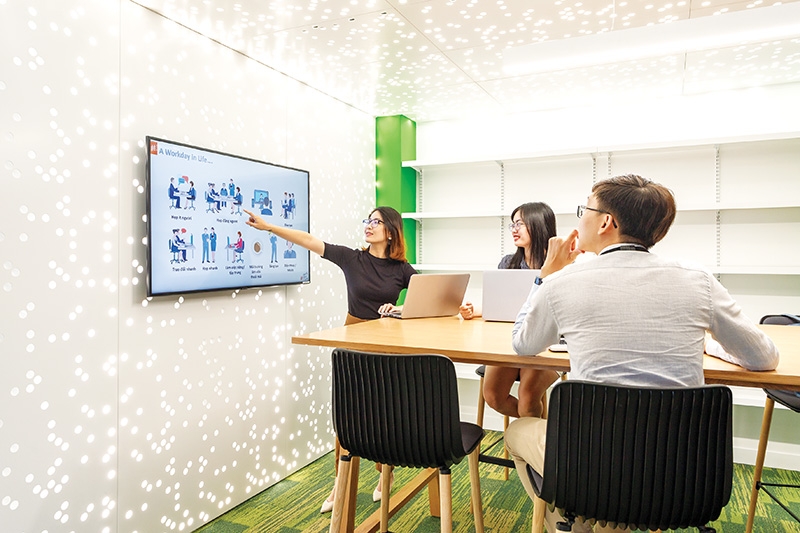 |
| New legislation from February 2021 will greatly improve the working environment for women through stronger protections |
The last days of 2020 brought good news to many female workers in Vietnam when the government revised the Labour Code with major changes increasing the rights of female labourers. Article 80 of Decree No.145/2020/ND-CP stipulates that, from February 1, a woman is entitled to a 30-minute paid break each day, at least three days a month during menstruation, while still receiving full wages as stipulated in her employment contract.
Providing a woman has no plan to take advantage of this right, her hours will be counted as working on leave days and, therefore, paid.
This is considered a humanitarian decree exclusively for female workers, along with provisions such as allowing pregnant workers to have more time off for antenatal care, or female employees with children under the age of 12 months entitled to a 60-minute break per day to breastfeed and rest.
Positive feedback
News of the benefits immediately received enthusiastic responses from millions of workers, including male business owners.
Nguyen Cuong, owner of two C-Brewmaster craft beer factories said, “Encouraging and enabling female workers to have more time to rest and restore health will help them work more effectively, thereby creating sustainable values for the business.”
In fact, although the working environment and the welfare regime for female workers has improved in recent years, persistent inequalities still exist between men and women on access to the labour market, unemployment, and conditions at work. The COVID-19 pandemic has been seen as a catalyst aggravating the situation, especially in the context of the rapidly-increasing number of job losses and unemployment globally.
Statistics from the International Labour Organization (ILO) show that nearly 510 million people, or 40 per cent of global female workers, are severely affected by this crisis, while the proportion of men is lower.
The report also pointed out that gender stereotypes are the main reason for hindering the development and advancement of the careers of Vietnamese women, reflected in the low proportion of women in management positions and even fewer at the highest management levels.
Of the enterprises surveyed in Vietnam, 63 per cent indicated that women were present at the supervisory management level and 73 per cent confirmed that they had women as middle managers, but only 15 per cent said that women held top executive positions.
“Nearly 55 per cent of respondents agreed that women with equal skills and qualifications to men face greater difficulties reaching top management positions,” said ILO Vietnam labour economist Valentina Barcucci. “Gender biases in the mindsets of managers can be barriers for women to advance into leadership positions.”
Women on average spend twice as many hours as men per week in unpaid household work while their working hours outside the home are similar to those of men.
In addition, barriers such as interrupted work time between births or some other sensitive factors such as menstrual pain or fatigue also become a barrier that makes it difficult for women to wholeheartedly pursue their careers.
Therefore the elimination of gender gaps and the promotion of employment and better income for female and male workers in a free, equal, and safe environment is not only seen as a measure of the nation’s progress, but also the sustainable development goal that Vietnam is heading towards.
No-one left behind
In recent years, Vietnam has undergone positive changes towards reducing gender inequality and gradually removing stereotypes in the treatment of men and women.
The country enacted the Law on Gender Equality in 2006 and made achievements on gender equality and elimination of the gender gap in labour and employment. In 2019, Vietnam revised the Labour Code and a number of laws related to employment regulations for female employees, ensuring the rights of employees.
At the Meeting of Women Parliamentarians during the AIPA 41 event in 2020 when Vietnam assumed the chair role of ASEAN, the National Assembly (NA) proposed parliamentarians to discuss gender equality and reaffirmed the role of female parliamentarians in promoting women to take up high positions in governments.
Nguyen Thuy Anh, chairwoman of the NA’s Committee on Social Affairs said, “As female parliamentarians, we represent the voices of more than 300 million women and girls in the region. Therefore, female parliamentarians need to unite more to bring about practical changes in the new normal state, to resolve the remaining inequalities between men and women in society.”
The number of Vietnamese and foreign companies operating in Vietnam and engaging in commitments to gender equality in the work environment is increasing. An equal working environment between male and female workers has now become a measure of the corporate value and an important sustainable development goal for businesses.
The introduction of awards such as the Women’s Empowerment Principles (WEPs) in the Asia-Pacific region, or the Economic Dividends for Gender Equality certificate, are a way to encourage, recognise, and honour businesses that have made good use of the principles of women’s empowerment in implementing the Law on Gender Equality in the workplace.
Do Thi Xuan Chi, head of communications at Ho Chi Minh City Power Corporation noted that it was the first enterprise in Vietnam to receive the Economic Dividends for Gender Equality Certification.
The group has nearly 7,000 employees, of which female workers account for nearly one-third. The corporation has executive boards to maintain labour relationships, female employees are arranged properly, and the corporation also organises biannual dialogues with employees to discuss some of their concerns.
According to Giang Thanh Long, a senior lecturer at the National Economics University, the empowerment of women and implementation of gender equality at the workplace is not really something new, but has been successfully applied by neighboring countries such as South Korea and Japan for a much long time.
“Empowering women here does not mean leaving men behind, but creating conditions for men to participate in supporting women at work, encouraging women to maximise their capacity to create high productivity,” Long said.
“This will contribute significantly to changing men’s perceptions, making them realise that it is also necessary to be fair to women in performing functions with the family and society. It will be a perfect complement, and the foundation to achieve the prosperity and sustainable development of each country and every business,” he said.
| Lifting up ethnic minority women
The Gender Responsive Equitable Project, on gender equality through economic empowerment for ethnic women in agriculture and tourism, was created by Gender Responsive Equitable Agriculture and Tourism (GREAT) in cooperation with the Centre for Rural Economy Development several years ago. In that time, it has contributed to increasing income for 400 women in the northern mountainous provinces of Vietnam, most of whom are ethnic minority women. The special feature of the project is that it does not operate under a specific business model but plays a role of connecting and cooperating with local businesses and state agencies to support jobs for ethnic minority women living mainly in Son La and Lao Cai provinces. These are areas where more than 40 per cent of the population lives in poverty, and cultural differences also create barriers for women to freely and equally participate in economic activities. Through consulting and assisting local people to develop community-based tourism and agriculture models, GREAT projects have helped more than 80 per cent of ethnic minority women eliminate language capital constraints and prejudice stereotypes about economic dependence and lack of self-determination in the family to become more confident in a new role. According to Truong Quynh Phuong, a GREAT project officer, the goal of both these projects is to support local women to develop economically, have a stable job and income, and thereby play a role and position in the family. “The women who started from agriculture then switched to tourism shared that they became more connected to each other, often learned from each other, and supported each other in doing business and developing together,” Phuong explained. Successful models of empowerment
After 25 years of development in Vietnam, FrieslandCampina, which owns familiar beverage brands such as Dutch Lady, Friso, Fristi, and Yomost, is continuing to make waves after being honoured with its efforts in creating a gender-inclusive workplace. Receiving the award for the first time, Phan Nam Tran, HR director of FrieslandCampina Vietnam shared, “Improving women’s empowerment and gender equality is one of the top priorities in development of people at Friesland Campina Vietnam. We are very proud that nearly 50 per cent of our management staff and one-third of our board members are female, and that more and more female candidates are joining the company’s Fresher & Management Trainee programme. With these results, we want to become a pioneer and model to spread this spirit to the business community and society.” A special feature in the working environment of FrieslandCampina Vietnam is that the company always aims at human development as a key factor in building a strong business. From organising training courses that focus on management and leadership skills, win-win thinking, and inspiring female employees to be motivated to develop their jobs and make the right decisions, Friesland Campina Vietnam has successfully raised the position and role of women equal to men. A representative of the company added, “We want each employee to proactively address any form of discrimination or harassment, and we expect business partners to practice with us. We aim to end all forms of discrimination and violence against women anywhere, because they must have enough rights and equal opportunities to live freely, beautifully, and joyously.” Nestlé programme spreads positive message -
Gender equality and women’s empowerment, especially in rural areas, are the commitments being implemented by Nestlé Vietnam, with the Sister Nest initiative in collaboration with the Vietnam Women’s Union playing an outstanding role since 2017. The programme has supported training to improve knowledge of nutrition and business skills, and increased income for 9,000 members in 1,500 communes across 20 cities and provinces, supporting more than 1.5 million rural households. Dang Thi Nga, chairwoman of the Women’s Union of Hong Quang commune in Hai Duong province, said that through the programme, women in the commune have become more flexible in their work, increased incomes, and become economically independent in the family. Communication skills, nutritional knowledge, and healthcare needs have also been greatly improved. All the information has been shared and discussed through regular association activities. One of the best examples of gender balance contribution and women’s empowerment across the entire Nestlé value chain is the NESCAFÉ Plan project. It has contributed to enhancing the role and status of women through training a team of female coffee farmers, making them the bridge to convey the project’s farming knowledge and experience to other farmers. The percentage of female farmer group leaders has so far reached 30 per cent of the total number of leaders participating in the project. In the working environment at Nestlé, the principles of gender equality are shown in the activities of the company’s HR development and empowerment strategy. The proportion of women holding senior management and leadership positions has surpassed the number of men by 50-55 per cent. “Not only do we make commitments on gender equality and women’s empowerment but we also have made these commitments possible through the development of specific HR development policies and strategies. At the same time, we built an equal culture and environment based on the values of respect for differences and the principles of women’s empowerment at our company and across our value chain,” said Truong Bich Dao, HR director of Nestlé Vietnam. With these achievements, at the end of November, the United Nations Agency on Gender Equality and Empowerment of Women (UN Women) awarded WEPs to Nestlé Vietnam for its commitments and achievements in the categories of Community and Industry Engagement and Gender-Inclusive Workplace. Unilever Vietnam guides inspiring journey
Not only proud of the dense coverage of Unilever-branded products among Vietnamese families, in recent years Unilever Vietnam has also been considered as a guide, promoting one of the most successful models in achieving gender equality in businesses. Since 2007, the company has cooperated with the Vietnam Women’s Union to implement programmes to empower women in difficult circumstances in every province with a commitment to invest more than VND240 billion ($10 million). The highlight of the programmes is the financial fund that supports 50,000 women and their families in business with a total loan of about VND350 billion ($15.2 million) as well as health and hygiene education activities. The goal is to provide educational support to five million women by the end of 2025. Unilever Vietnam also breaks down women’s promotion barriers by building a training and development roadmap, and nominating women to leadership positions with a proportion of female managers of nearly 53 per cent. The company is also increasing maternity leave and providing better care for women with young children. Unilever Vietnam’s efforts have been recognised with a Committed Leadership Award and a Gender Equality at Work Award through WEPs. The long-term goal of the business is to become a model for successful application of a sustainable business model based on equality, cooperation, and inspiration for enterprises, customers, and retailers to promote gender equality and women’s empowerment. Besides that, there are efforts to raise consumer awareness about gender equality through product creation and innovation campaigns. “We want to become an inclusive business to contribute to an equal world, regardless of gender, region, religion, and race. We aim for a world in which every female can create a desired life without being constrained by social stereotypes,” said Unilever Vietnam chairwoman Nguyen Thi Bich Van. |
What the stars mean:
★ Poor ★ ★ Promising ★★★ Good ★★★★ Very good ★★★★★ Exceptional
 Tag:
Tag:
Themes: Empowering Women
- Female influence still to be attained
- Shaping Vietnam's corporate future: female board members show business excellence
- Nestlé Vietnam contributes to elevating the role of women across the supply chain
- Empowering female leaders in tech: insights and aspirations shared at KPMG Tech Innovator 2023
- Brighter Path programme hosts empowerment meeting for ethnic minority girls
Related Contents
Latest News
More News
- Foreign leaders extend congratulations to Party General Secretary To Lam (January 25, 2026 | 10:01)
- 14th National Party Congress wraps up with success (January 25, 2026 | 09:49)
- Congratulations from VFF Central Committee's int’l partners to 14th National Party Congress (January 25, 2026 | 09:46)
- 14th Party Central Committee unanimously elects To Lam as General Secretary (January 23, 2026 | 16:22)
- Worldwide congratulations underscore confidence in Vietnam’s 14th Party Congress (January 23, 2026 | 09:02)
- Political parties, organisations, int’l friends send congratulations to 14th National Party Congress (January 22, 2026 | 09:33)
- Press release on second working day of 14th National Party Congress (January 22, 2026 | 09:19)
- 14th National Party Congress: Japanese media highlight Vietnam’s growth targets (January 21, 2026 | 09:46)
- 14th National Party Congress: Driving force for Vietnam to continue renewal, innovation, breakthroughs (January 21, 2026 | 09:42)
- Vietnam remains spiritual support for progressive forces: Colombian party leader (January 21, 2026 | 08:00)

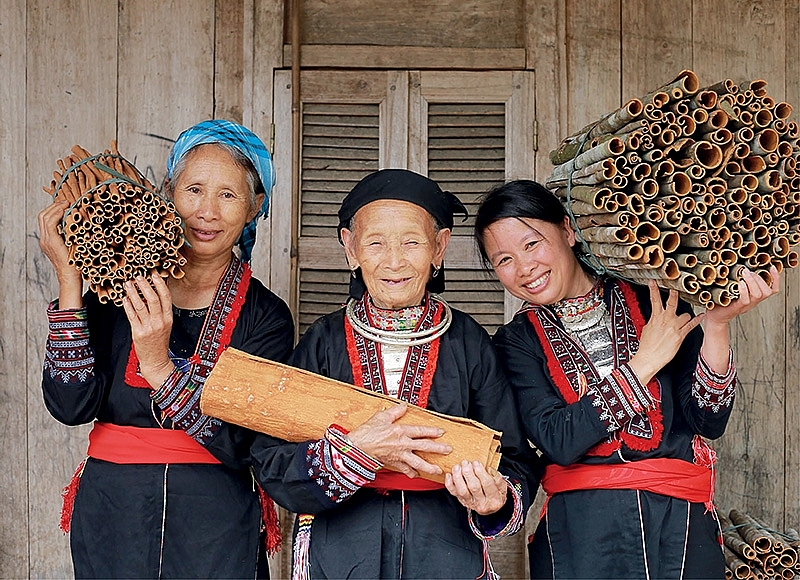
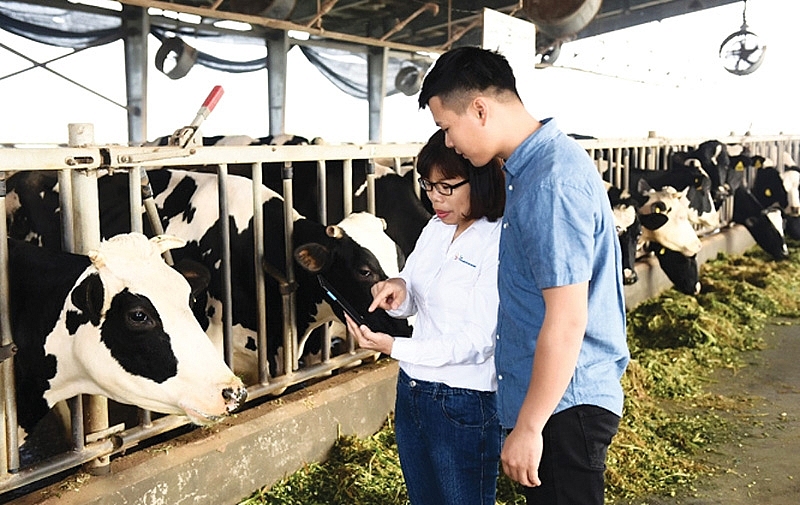
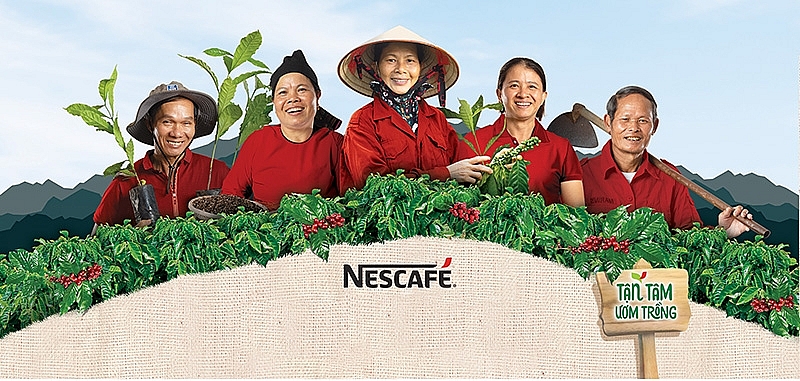
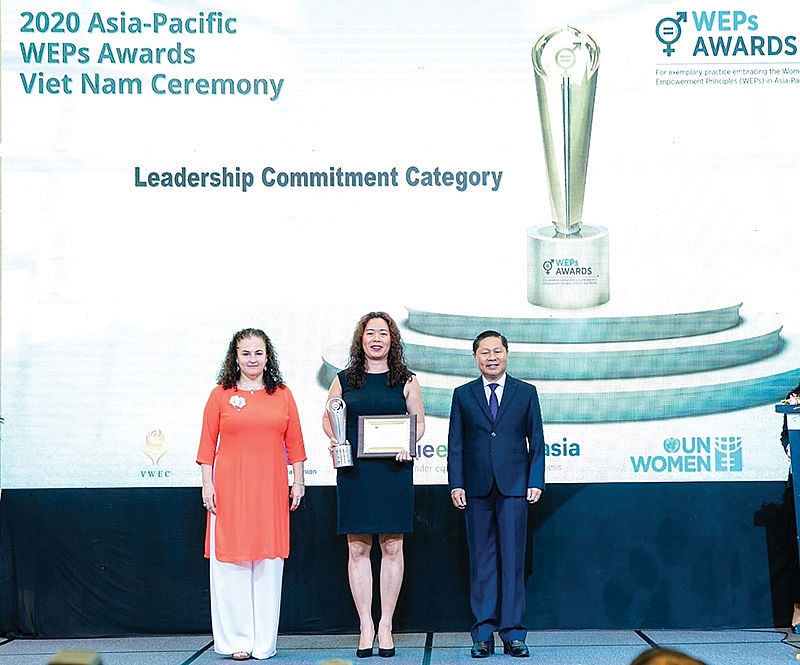





















 Mobile Version
Mobile Version